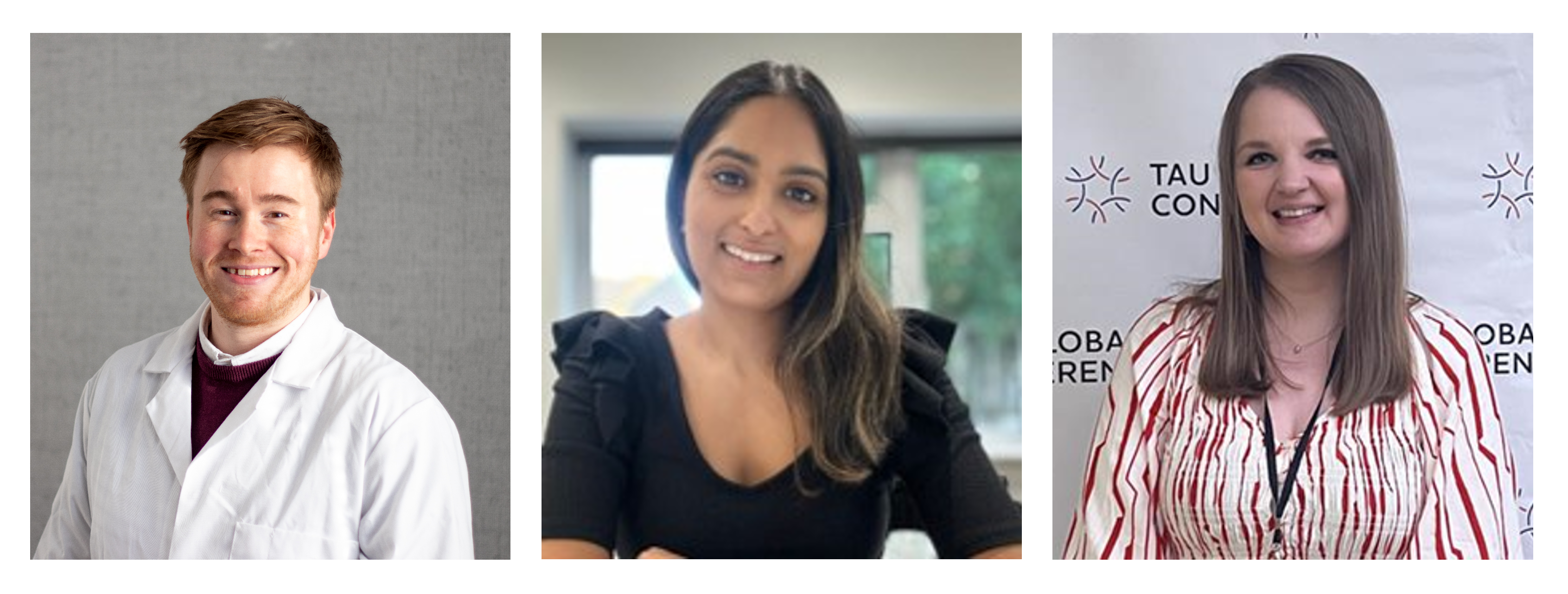This £362,780 award will establish whether tau directly impacts astrocytes, cells wrapped around blood vessels that transfer nutrients, and whether resulting damage to these cells drives vascular damage.
Paula will test her hypothesis that tau is directly impacting astrocytes, cells wrapped around blood vessels that transfer nutrients, and the resulting damage to these cells is driving vascular damage. Paula is moving to the University of Edinburgh to further develop her research skills needed for the project, she will also develop mentorship skills by hosting an intern, funded by the postdoctoral fellowship.



This £549,999 award will determine how mixed protein aggregates form, both in patient tissue and in cell culture, and how they might be identified in a diagnostic test to increase accurate diagnosis of mixed dementia.
Dr Devkee Vadukul, Imperial College London, aims to enable more people to receive an accurate mixed dementia diagnosis. Up to 50% of people living with dementia are likely to have a mix of proteins aggregating in the brain but, as dementia is diagnosed primarily by symptoms, the mix of proteins is only revealed during post-mortem analysis.
Through her Fellowship, Devkee will analyse how mixed protein aggregates form, both in patient tissue and in cell culture, and how they might be identified in a diagnostic test, establishing Devkee as a research leader in protein aggregation studies in dementia.
This £549,747 award will use tissue slice culture to increase understanding into novel findings that tau knots can unravel and how potential treatments could speed up the unravelling process.
Dr Cara Croft, Queen Mary University London, has developed a new approach to watch tau knots forming in real-time in mouse brain tissue slices, which revealed that tau knots can also unravel. Cara will expand on these exciting findings to understand how this process works, and how treatments could potentially speed up the unravelling. As part of her Fellowship, Cara has received funding to mentor her first PhD student as primary supervisor, providing the opportunity for a PhD student to be part of this groundbreaking work and allowing Cara to further develop her leadership skills training the next generation of dementia researchers.
This £549,996 award focuses on the glymphatic system, which flushes waste proteins from the brain, and how this system could be boosted to clear amyloid and tau proteins.
Being awarded a DRL Fellowship will allow Dr Ian Harrison, University College London, to dedicate more of his time to research and supervision of his expanding team. Ian has established his research group studying brain clearance systems and how these are involved in neurodegenerative diseases. Ian will specifically focus on the glymphatic system, which flushes waste proteins from the brain, including amyloid and tau that build up in Alzheimer’s disease. Ian will now define the therapeutic window of where boosting this process could prevent brain cell death.